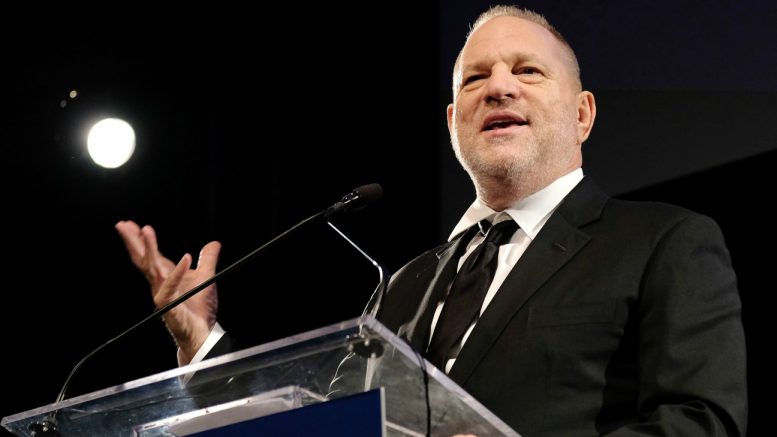No media organization wants to be dragged into court. But if The New York Times is indeed sued by Harvey Weinstein over its exposé published Thursday about “decades of harassment” on the part of the movie mogul, there could be one upside for the paper.
On Friday, Danielle Rhoades Ha, a Times spokeswoman, called upon Weinstein to release employees from any nondisclosure agreements they may have signed in exchange for dropping claims against the mogul. “As a supporter of women, he must support their right to speak openly about these issues of gender and power,” she said.
But here’s the thing.
Most NDAs include an exception that allows individuals to comply with the legal process including responding to a subpoena. So if Weinstein really does move ahead with a promised defamation lawsuit, and the case makes it to the discovery phase where information is exchanged between both sides, expect the paper to fight back by investigating the truth and attempting to compel testimony from even those who are under confidentiality obligations.
As a refresher, NDAs are legally binding contracts that prevent the disclosure of “private” information. They are fairly common in certain industries, including entertainment, that value secrecy from employees and, most significantly, ex-employees.
According to the Times, Weinstein reached settlements with at least eight women, including actress Rose McGowan and several employees of The Weinstein Co., that included NDAs preventing them from discussing Weinstein’s behavior. Those NDAs have been cited as a major reason why more women have not come forward with allegations against Weinstein.
But if Harvey sues The New York Times?
Things could get complicated if Weinstein tries to get the court to preclude testimony by enforcing his contracts, or if the recipients of the subpoenas look to quash the subpoenas. An initial search of case law on this subject turned up nothing. There’s been some close cases, such as one (Albany Molecular Research v. George C. Shloemer) decided a few years ago by a DC Circuit over whether testimony could be quashed with the prospect of trade secrets being let loose.
But if courts can compel reporters (e.g. ex-Times scribe James Risen) despite First Amendment objections that historically allowed them to invoke privilege to avoid testifying about confidential sources, and if lawyers and doctors can be compelled to break privileges in certain circumstances, a contractual obligation seems unlikely to stop anyone who signed a deal with Weinstein from coming forward.
“An NDA is not enforceable to conceal unlawful conduct,” says Devin McRae, an entertainment litigator who specializes in employment disputes. But that doesn’t mean a subpoena to a woman who says she was harassed would ultimately result in testimony. “The question is would the court force an alleged victim to testify about things that are private if they don’t want to,” McRae says.
Meanwhile, Weinstein would face an uphill battle in quashing the testimony of anyone who did wish to testify, experts say, because he’s the one who would be putting the facts of the matter at issue by launching the litigation.
“By filing a lawsuit, Harvey certainly opens the door to such discovery,” says litigator Andrew Brettler, who regularly handles Hollywood defamation cases. “I’m surprised that he would want to do that.”
Given the risk, they question whether Weinstein’s legal team will actually pursue this fight.
“If he brings a defamation claim, he’s going to have to identify the specific facts reported in the article that are not true,” says McRae. “Everyone is going to assume that everything he doesn’t take issue with was, in fact, true.”
Adds Brettler: “His entire private life could be put at issue, and then he almost goes on trial. If he has nothing to hide, I assume Charles Harder [the lawyer who represented Hulk Hogan in his successful lawsuit against Gawker and who says he is preparing a lawsuit against the Times on behalf of Weinstein] knows what he’s doing.”
Source: www.hollywoodreporter.com




